Filter by
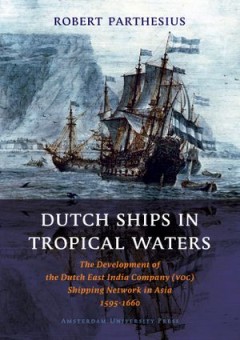
Dutch Ships in Tropical Waters
The end of the 16th century saw Dutch expansion in Asia, as The Dutch East India Company (the VOC) was fast becoming an Asian power, both political and economic. By 1669, the VOC was the richest private company the world had ever seen. This landmark study looks at perhaps the most important tool in the Company' trading - its ships. In order to reconstruct the complete shipping activities of the…
- Edition
- -
- ISBN/ISSN
- 9789053565179
- Collation
- -
- Series Title
- -
- Call Number
- -
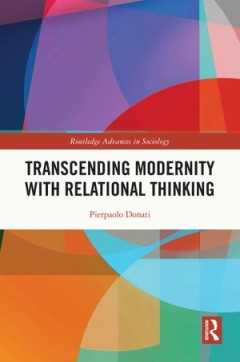
Transcending Modernity with Relational Thinking
This book explores the ways in which social relations are profoundly changing modern society, arguing that, constituting a reality of their own, social relations will ultimately lead to a new form of society: an aftermodern or relational society. Drawing on the thought of Simmel, it extends the idea that society consists essentially of social relations, in order to make sense of the operation o…
- Edition
- -
- ISBN/ISSN
- 9781000382723
- Collation
- -
- Series Title
- -
- Call Number
- 301 DON t

Tourism and Travel during the Cold War: Negotiating Tourist Experiences acros…
The Iron Curtain was not an impenetrable divide, and contacts between East and West took place regularly and on various levels throughout the Cold War. This book explores how the European tourist industry transcended the ideological fault lines and the communist states attracted an ever-increasing number of Western tourists. Based on extensive original research, it examines the ramifications of…
- Edition
- -
- ISBN/ISSN
- -
- Collation
- -
- Series Title
- -
- Call Number
- 338.4 TOU t
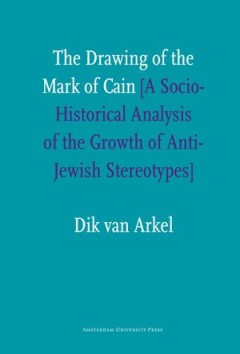
The Drawing of the Mark of Cain
Antisemitism is an exceptional historical phenomenon. Its history goes back at least 2000 years and has manifested itself in many countries and in a wide range of societies. However, it is not a universal phenomenon. Many countries have no tradition of anti-Semitism and even in those where anti-Semitism periodically raises its head, there have been long periods where it appears to have lain dor…
- Edition
- -
- ISBN/ISSN
- 9789089640413
- Collation
- -
- Series Title
- -
- Call Number
- -
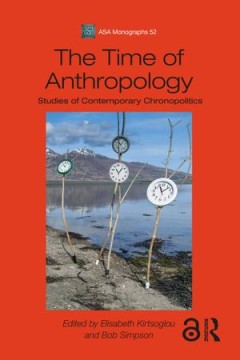
The Time of Anthropology: Studies of Contemporary Chronopolitics
The Time of Anthropology provides a series of compelling anthropological case studies that explore the different temporalities at play in the scientific discourses, governmental techniques and policy practices through which modern life is shaped. Together they constitute a novel analysis of contemporary chronopolitics. The contributions focus on state power, citizenship, and ecologies of time t…
- Edition
- -
- ISBN/ISSN
- 9781000185805
- Collation
- -
- Series Title
- -
- Call Number
- 301 TIM t
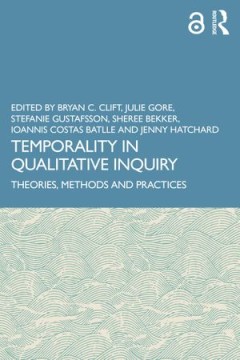
Temporality in Qualitative Inquiry: Theories, Methods and Practices
Temporality in Qualitative Inquiry explores the relationship between time and qualitative research and unpacks some of the conceptual, methodological, practical, and pragmatic areas of qualitative inquiry related to time and temporality. This book advances the understanding and re-evaluation of research practice by examining the passage of time, temporal feeling, and conceptualising of time/…
- Edition
- -
- ISBN/ISSN
- 9781000356687
- Collation
- -
- Series Title
- -
- Call Number
- 300.7

Discourses on Social Software
- Edition
- -
- ISBN/ISSN
- 9789089641236
- Collation
- -
- Series Title
- -
- Call Number
- -
- Edition
- -
- ISBN/ISSN
- 9789089641236
- Collation
- -
- Series Title
- -
- Call Number
- -
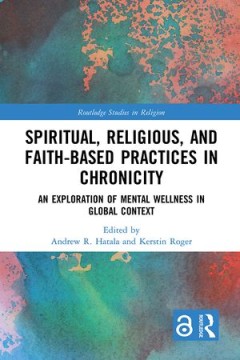
Spiritual, Religious, and Faith-Based Practices in Chronicity: An Exploration…
This book explores how people draw upon spiritual, religious, or faith-based practices to support their mental wellness amidst forms of chronicity. From diverse global contexts and spiritual perspectives, this volume critically examines several chronic conditions, such as psychosis, diabetes, depression, oppressive forces of colonization and social marginalization, attacks of spirit possession,…
- Edition
- -
- ISBN/ISSN
- 9781000452402
- Collation
- -
- Series Title
- -
- Call Number
- -
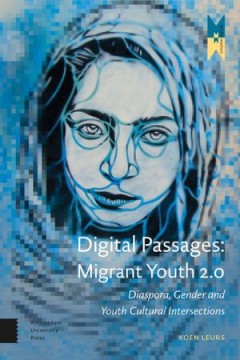
Digital Passages Migrant Youth 2.0: Diaspora, Gender and Youth Cultural Inte…
Increasingly, young people live online, with the vast majority of their social and cultural interactions conducted through means other than face-to-face conversation. How does this transition impact the ways in which young migrants understand, negotiate, and perform identity? That’s the question taken up by Digital Passages: Migrant Youth 2.0, a groundbreaking analysis of the ways that youth …
- Edition
- -
- ISBN/ISSN
- 9789048523047
- Collation
- -
- Series Title
- -
- Call Number
- -
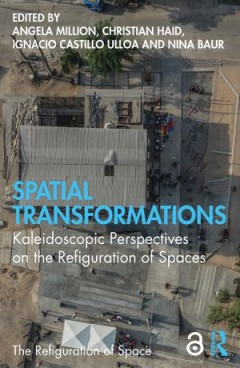
Spatial Transformations: Kaleidoscopic Perspectives on the Refiguration of Sp…
This book examines a variety of subjective spatial experiences and knowledge production practices in order to shed new light on the specifics of contemporary socio-spatial change, driven as it is by inter alia, digitalization, transnationalization and migration. Considering the ways in which emerging spatial phenomena are conditioned by an increasing interconnectedness, this book asks how space…
- Edition
- -
- ISBN/ISSN
- 9781000462715
- Collation
- -
- Series Title
- -
- Call Number
- 301 SPA s
 Computer Science, Information & General Works
Computer Science, Information & General Works  Philosophy & Psychology
Philosophy & Psychology  Religion
Religion  Social Sciences
Social Sciences  Language
Language  Pure Science
Pure Science  Applied Sciences
Applied Sciences  Art & Recreation
Art & Recreation  Literature
Literature  History & Geography
History & Geography